
Betty White’s name became synonymous with the very fabric of American entertainment, a radiant presence whose career spanned an astonishing almost seven decades. From the nascent days of television to its most contemporary forms, she was not merely a participant but a true architect, carving out a unique and enduring legacy that captivated generations. Her journey, marked by innovation, resilience, and an indomitable spirit, offers a profound retrospective on the evolution of an industry and the indelible mark of a singular talent.
Born in 1922, White’s trajectory in show business began long before television became a household staple, yet it was in this nascent medium that she would forge her most significant groundbreaking achievements. She navigated the intricate landscape of a rapidly evolving entertainment world, demonstrating an uncanny ability to adapt, yet always retaining that distinctive wit and warmth that would become her trademark. Her story is one of unwavering dedication, artistic courage, and a profound understanding of the power of connection through the screen.
This examination of her early and foundational career will delve into the pivotal moments and groundbreaking roles that not only defined Betty White as an entertainer but also shaped the very conventions of television itself. We explore how she transcended traditional boundaries for women in media, becoming a producer, host, and a comedic tour de force whose influence continues to resonate. Join us as we recount the formative chapters of a career that truly stands unparalleled in the annals of broadcast history.
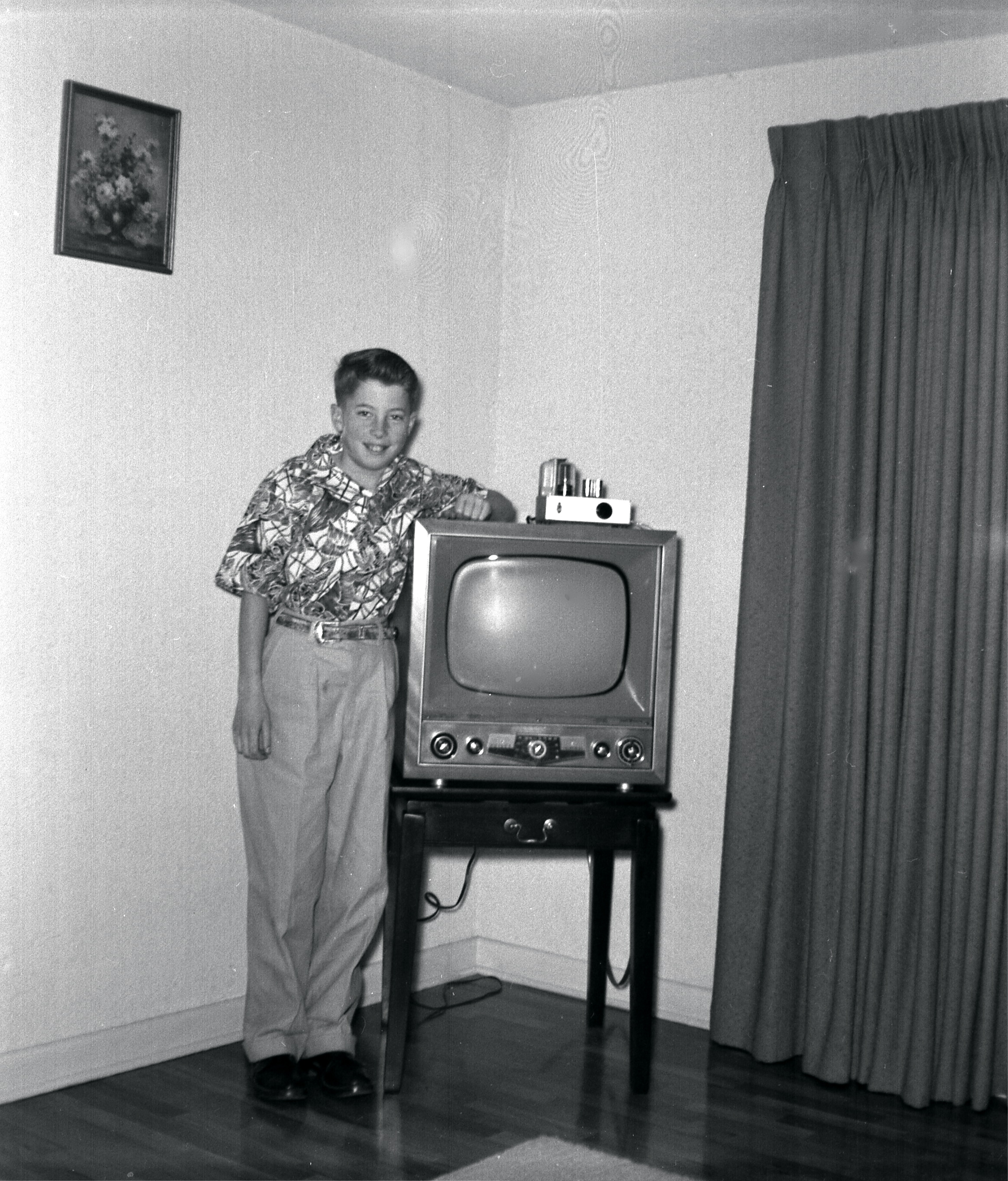
1. **Pioneer of Early Television**Betty White was, without hyperbole, a genuine pioneer of early television, her career stretching across an impressive almost seven decades. Her journey began at a time when the medium itself was experimental, a frontier yet to be fully explored. This extraordinary longevity is a testament not only to her talent but also to her remarkable adaptability and foresight in an industry constantly in flux.
Her initial foray into this uncharted territory was as early as one month after she graduated from Beverly Hills High School in 1939. She and a classmate sang songs from “The Merry Widow” on an experimental television show, a moment that in retrospect marks her as one of the very first individuals to grace the small screen. This early exposure to the medium set the stage for a career that would consistently push boundaries and define new roles for women in entertainment.
White’s sustained presence from these embryonic stages to her late-career resurgence made her a unique figure, a living bridge connecting the earliest days of live broadcast to the multi-platform landscape of the 21st century. Her contributions helped shape the grammar of television, influencing generations of performers and producers who followed in her pioneering footsteps. Her vision extended beyond performance, as she quickly embraced roles behind the camera, a truly groundbreaking move for a woman of her era.
Read more about: Whatever Happened to the Iconic Child Stars of the 1960s? From Red Carpet to Unforgettable Journeys

2. **Early Radio Work & Transition to TV**Before her luminous career in television fully blossomed, Betty White honed her craft in the sound-rich world of radio, a common proving ground for many entertainers of her generation. After World War II, where she volunteered for the American Women’s Voluntary Services, she encountered initial rejections from movie studios, being deemed “not photogenic.” Undeterred, she turned to radio, a medium where visual appeal held no sway.
Her early radio jobs were humble yet formative, encompassing everything from reading commercials and playing bit parts to even performing crowd noises. These experiences, for which she would earn around five dollars a show, cultivated her versatile voice acting skills and her quick wit, attributes that would become invaluable in her future live television work. She appeared on popular shows such as “Blondie,” “The Great Gildersleeve,” and “This Is Your FBI,” steadily building her experience and reputation.
The culmination of her radio efforts was being offered her own program, called “The Betty White Show,” a significant milestone that foreshadowed her eventual command of the television screen. This period allowed her to develop a direct connection with an audience through sound alone, refining her ability to engage and entertain without the visual cues that television would later provide. Her successful transition from radio to television exemplifies her innate understanding of media and audience engagement.
Read more about: 14 Beloved Sitcom Stars You Might Not Have Known We’ve Sadly Lost Too Soon
3. **Hollywood on Television: The Live TV Dynamo**In 1949, Betty White made a pivotal leap to the burgeoning medium of television, joining Al Jarvis as co-host on his daily live television variety show, “Hollywood on Television.” This program, originally titled “Make Believe Ballroom,” broadcast on KFWB and then KLAC-TV in Los Angeles, became a significant platform for White to showcase her talents and connect directly with a burgeoning television audience. The format, characterized by its live, unscripted nature, demanded immense spontaneity and charm, qualities White possessed in abundance.
By 1952, following Jarvis’s departure, White took on the demanding role of sole host, presiding over an astonishing five and a half hours of live, ad-lib television six days a week. This continuous four-year span marked a period of immense growth and solidified her reputation as a live television dynamo. In an era where television was still finding its footing, White’s ability to maintain an engaging presence for such extended periods, often singing multiple songs during each broadcast, was nothing short of remarkable.
Her work on “Hollywood on Television” was groundbreaking for its sheer volume and White’s integral role in its production. It was during this period, in 1951, that she received her first Emmy Award nomination as “Best Actress” on television, competing against luminaries like Judith Anderson and Helen Hayes. This early recognition underscored her immediate impact on the medium, establishing her as a formidable and respected talent in the nascent television landscape.

4. **Life with Elizabeth: A Sitcom Revolution**A truly revolutionary achievement in Betty White’s early career was her co-founding of Bandy Productions in 1952 with writer George Tibbles and producer Don Fedderson. This collaborative venture led to the creation of the television comedy “Life with Elizabeth,” a program that would earn White the distinction of becoming the first woman to produce a sitcom. This was a monumental feat in an industry overwhelmingly dominated by men, granting her an unprecedented level of creative control.
“Life with Elizabeth” initially debuted as a live production on KLAC-TV in 1951, quickly garnering critical acclaim and earning White a Los Angeles Emmy Award in 1952 for her portrayal of the title character. The show’s national syndication from 1953 to 1955 further amplified its reach, solidifying White’s position as one of the few women in television with full creative control, both in front of and behind the camera. This dual role as star and producer was virtually unheard of for a woman in her late twenties, highlighting her visionary approach to her career.
The sitcom was unique for the 1950s, not just for its female co-producer and owner, but also for its relatable narrative. White revealed that the incidents portrayed in the show were often based on real-life situations experienced by herself, her co-star Del Moore, and the writer, contributing to its authentic and enduring appeal. Her proactive role in developing, producing, and starring in “Life with Elizabeth” was a testament to her entrepreneurial spirit and her determination to shape her own creative destiny in a burgeoning industry.
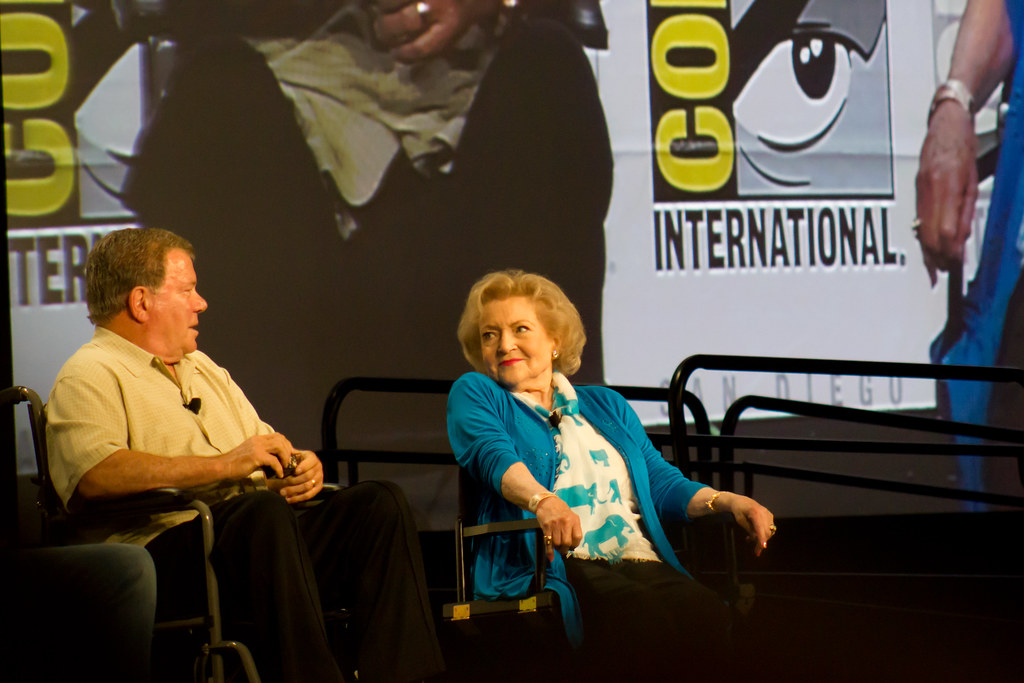
5. **The Betty White Show (1952-1954): Breaking Racial Barriers**While “Life with Elizabeth” showcased Betty White’s pioneering spirit in production, her contemporaneous variety program, “The Betty White Show” (1952–1954), served as a powerful testament to her unwavering commitment to diversity and inclusion. Initially broadcast on KLAC-TV and later expanding to NBC, this daily talk/variety show offered White another platform for creative control, including the ability to hire a female director—another remarkable departure from industry norms.
However, it was White’s bold decision to feature an African-American performer, tap dancer Arthur Duncan, as a regular cast member that cemented her legacy as a champion for racial equality. As the show expanded nationally, particularly into the Jim Crow-era South, it faced significant criticism. Local Southern stations threatened boycotts and demanded Duncan’s removal, illustrating the profound racial prejudices of the time.
In a moment that speaks volumes about her character and moral fortitude, White famously responded to these threats with an unequivocal “I’m sorry. Live with it,” and proceeded to give Duncan even more airtime. This courageous defiance of racial discrimination, at a time when such stances could jeopardize a show’s success, underscored White’s integrity. Although the show ultimately faced cancellation due to repeated time slot changes and declining viewership, her pioneering stand left an indelible mark, paving the way for greater representation in television long before it became a widespread industry norm.
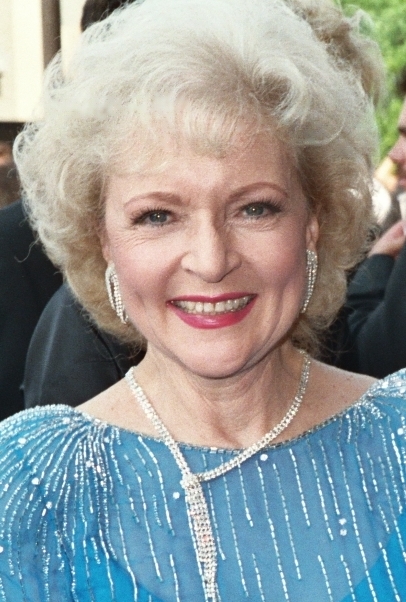
6. **”First Lady of Game Shows”: A Dominant Presence**Betty White’s charismatic personality and quick wit found a natural home in the world of game shows, earning her the affectionate moniker “the first lady of game shows.” Throughout the 1960s and beyond, she became a ubiquitous and beloved presence on countless network programs, captivating audiences with her sharp intellect and engaging demeanor. Her ability to think on her feet and her genuine warmth made her an instant favorite, solidifying her status as a television staple.
Her tenure as a celebrity guest on the hit “Password” show, beginning in 1961 and continuing through 1975, was particularly significant. It was through this show that she met and eventually married its host, Allen Ludden, in 1963, creating one of Hollywood’s most adored and enduring partnerships. Her connection to “Password” extended across its various iterations, including “Password Plus,” “Super Password,” and “Million Dollar Password,” demonstrating her lasting appeal in the genre.
Beyond “Password,” White’s game show appearances were extensive and varied, gracing panels on programs such as “What’s My Line?” (from 1955), “To Tell the Truth” (in 1961, 1990, and 2015), “I’ve Got a Secret” (in 1972–73), “Match Game” (1973–1982), and “Pyramid” (starting in 1982). Her profound impact on the genre was officially recognized in 1983 when she made history as the first woman to win a Daytime Emmy Award for Outstanding Game Show Host for her work on “Just Men!” This award was not merely a personal triumph but a landmark achievement, breaking gender barriers and cementing her legacy as a formidable and celebrated presence in the world of game show entertainment.
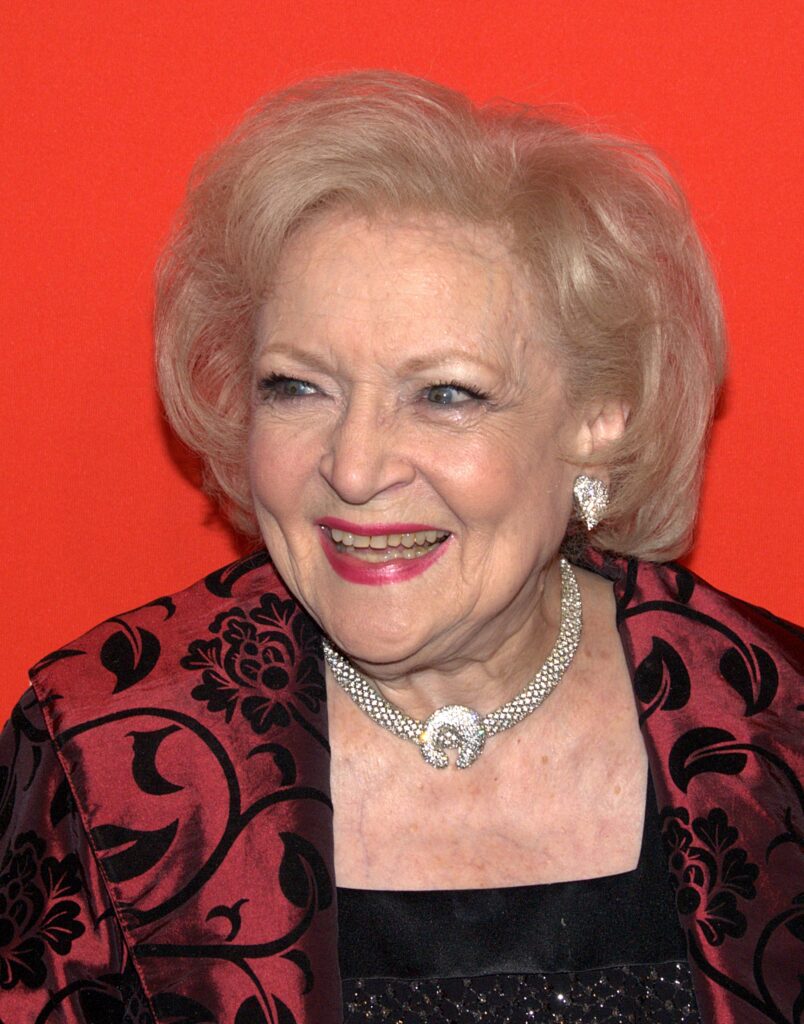
7. **Sue Ann Nivens: The “Happy Homemaker” on The Mary Tyler Moore Show**In 1973, Betty White embarked on what would become one of her most iconic and critically acclaimed roles: Sue Ann Nivens on the CBS sitcom “The Mary Tyler Moore Show.” Initially introduced in the fourth season as a guest star, White’s portrayal of the outwardly saccharine yet secretly “man-hungry” and cynical host of WJM-TV’s “The Happy Homemaker” immediately resonated with audiences and critics alike. It was a brilliant subversion of her own sweet persona, a masterclass in comedic irony.
The casting itself was serendipitous, with Mary Tyler Moore herself suggesting, “We need somebody who can play sickeningly sweet, like Betty White.” This insight led to White’s audition and subsequent casting, despite producers’ initial hesitations about the potential awkwardness with Moore, who was a close friend. White described the character’s “icky sweet” image as a highlight of her career, recognizing the genius in satirizing her own public persona through Sue Ann’s aggressive, biting humor beneath the veneer of domestic perfection.
Sue Ann Nivens quickly became a fan favorite, leading producers to elevate White to the main cast starting with the fifth season. Her performance as the ruthless and sharp-tongued homemaker earned her two consecutive Emmy Awards for “Outstanding Supporting Actress in a Comedy Series” in 1975 and 1976, solidifying her status as a comedic powerhouse. This role not only showcased White’s incredible range but also provided one of television’s most memorable and enduring characters, a testament to her unparalleled comedic timing and fearless embrace of a complex, often outrageous, persona.
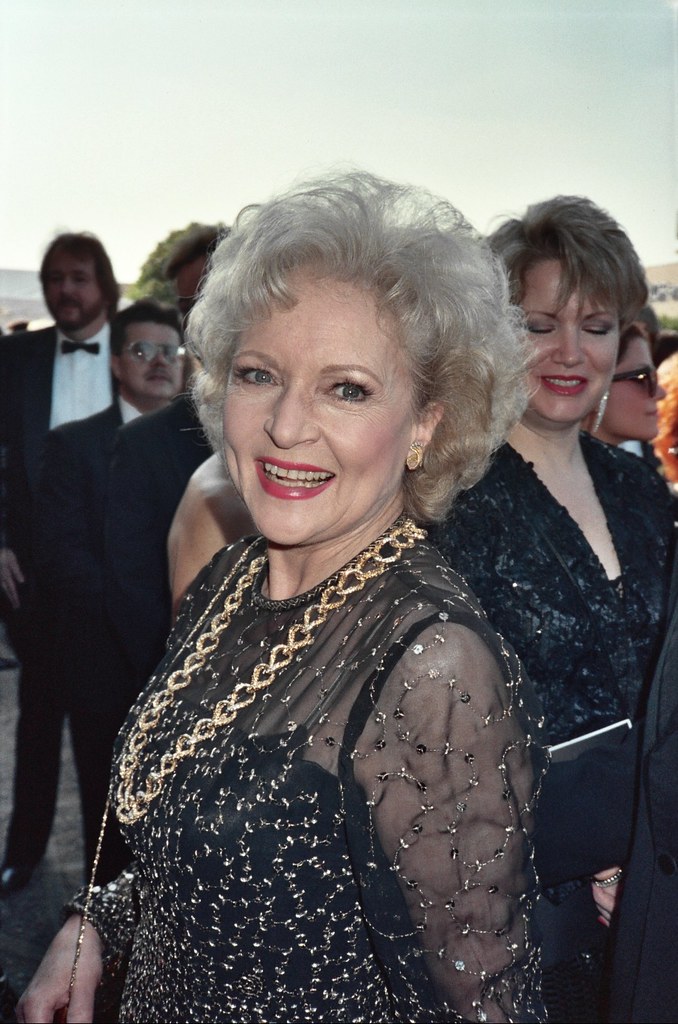
8. **The Golden Girls: A Cultural Phenomenon**As the 1980s dawned, Betty White was already a seasoned veteran, yet destiny was preparing her for a role that would etch her name into the pantheon of television legends: Rose Nylund on ‘The Golden Girls.’ Premiering in 1985, this NBC sitcom transcended mere entertainment, becoming a cultural touchstone that explored the lives of four older women navigating their ‘golden years’ in Miami. White’s portrayal of the endearing, perpetually naive Rose, hailing from the fictional St. Olaf, Minnesota, was a masterclass in comedic timing and character development, captivating millions with her whimsical anecdotes and innocent charm.
Remarkably, White was initially considered for the fiery role of Blanche Devereaux, while Rue McClanahan was eyed for Rose. It was the prescient suggestion of director Jay Sandrich to switch their roles that unlocked the show’s enduring magic. Sandrich astutely observed that both actresses had previously embodied similar character archepectives, and a reversal would inject fresh comedic energy. White, initially hesitant, fully embraced Rose after Sandrich explained the character as ‘terminally naive,’ famously quipping that ‘if you told Rose you were so hungry you could eat a horse, she’d call the ASPCA.’ This insightful direction allowed White to craft a character that became instantly iconic, balancing the sharp wit of her co-stars with an inimitable sweetness.
‘The Golden Girls,’ co-starring the formidable Bea Arthur, Estelle Getty, and Rue McClanahan, became an immense success, running for seven seasons until 1992. White’s performance earned her a Primetime Emmy Award for ‘Outstanding Lead Actress in a Comedy Series’ for the show’s inaugural season, followed by nominations in that category every subsequent year of its run. While her on-set relationship with Bea Arthur was sometimes strained, with Arthur finding White’s perpetual optimism a ‘pain in the neck,’ White later reflected on their mutual respect and the profound bond formed through their shared artistic endeavor, remarking after Arthur’s passing, ‘I knew it would hurt, I just didn’t know it would hurt this much.’ The series’ blend of humor, heart, and groundbreaking discussions on aging, sexuality, and friendship solidified its place in television history and elevated White’s career to unprecedented heights.
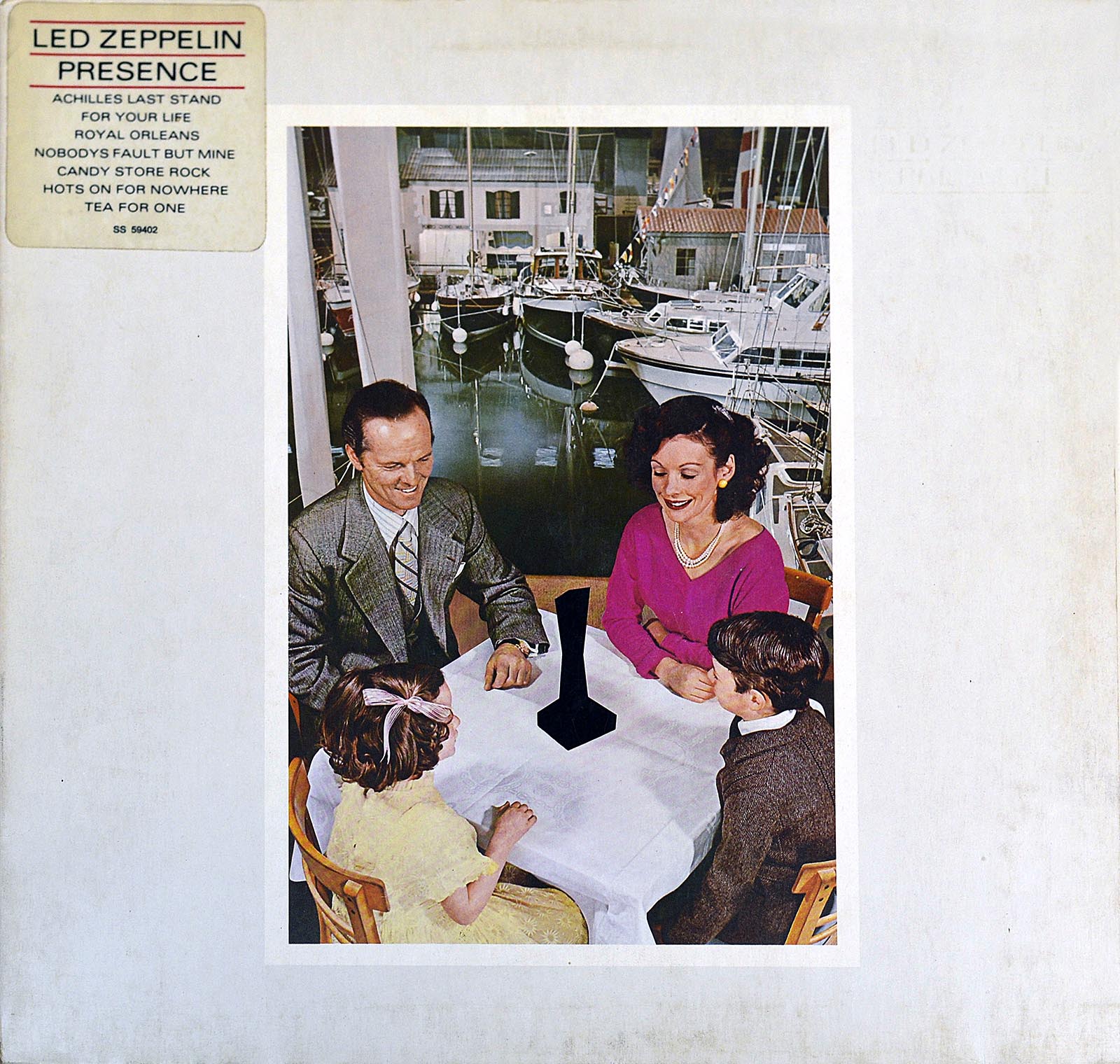
9. **Post-Golden Girls Ventures: Continued Versatility**Even after ‘The Golden Girls’ concluded its celebrated run in 1992, Betty White’s artistic journey was far from over. Her resilience and adaptability, hallmarks of her decades-long career, propelled her into a variety of new roles that showcased her enduring appeal and comedic versatility. The immediate continuation saw her, alongside Rue McClanahan and Estelle Getty, reprise their beloved roles as Rose, Blanche, and Sophia in the spin-off ‘The Golden Palace.’ Although this series proved to be short-lived, lasting only one season, it provided a testament to the enduring affection audiences held for these iconic characters.
Beyond the spin-off, White continued to grace screens with guest appearances on popular NBC shows like ‘Empty Nest’ and ‘Nurses,’ both strategically set in Miami to allow for her reprisal of the Rose Nylund character. These cameos delighted fans and proved her ability to weave her iconic persona into new narrative fabrics. Her post-‘Golden Palace’ era also saw a string of memorable guest roles on various television programs, including ‘Suddenly Susan,’ ‘The Practice,’ and ‘Yes, Dear,’ each earning her individual Emmy nominations and underscoring her consistent comedic prowess.
A particular highlight of this period was her Emmy-winning appearance in 1996 on an episode of ‘The John Larroquette Show,’ where she played a wonderfully parodied version of herself, a diva-like figure pushing for her memoir. Her willingness to playfully satirize her own celebrity further endeared her to audiences. White also ventured into feature films, appearing in the horror-comedy ‘Lake Placid’ in 1999 and the comedy ‘Bringing Down the House’ in 2003, demonstrating her ability to charm in diverse cinematic genres. Towards the mid-2000s, she joined the cast of ‘The Bold and the Beautiful’ in 2006 for 22 appearances as the long-lost matriarch Ann Douglas and began a recurring role in ABC’s ‘Boston Legal’ from 2005 to 2008 as the calculating Catherine Piper, a character she initially introduced on ‘The Practice.’ These varied engagements reaffirmed her status as a beloved and versatile actress, always finding new avenues to connect with audiences.

10. **Late-Career Resurgence: The Proposal and the Snickers Phenomenon**As the first decade of the 21st century drew to a close, Betty White, already a legend, embarked on a remarkable late-career resurgence that captivated a new generation of fans. This extraordinary revival truly ignited with her scene-stealing performance in the 2009 romantic comedy film ‘The Proposal,’ where she starred alongside Sandra Bullock and Ryan Reynolds. White’s portrayal of Grandma Annie, with her sharp wit and undeniable charm, proved to be an unexpected highlight of the film, reminding audiences of her comedic brilliance and universal appeal. Her presence lent a warmth and humor that resonated deeply, transforming what could have been a supporting role into a memorable and celebrated performance.
The year 2009 also marked a pivotal moment in popular culture with her appearance in a global advertising campaign for Mars, Incorporated’s Snickers bar. The campaign, cleverly centered around the slogan ‘You’re not you when you’re hungry,’ featured White in a Super Bowl XLIV advertisement in 2010 alongside Abe Vigoda. The commercial depicted White as a hungry, irritable football player who transforms back into a sweet old lady after consuming a Snickers bar. This brilliantly executed advertisement became an instant sensation, winning the top spot on the Super Bowl Ad Meter and cementing White’s status as a beloved pop culture icon, capable of connecting with audiences across all demographics and age groups.
The widespread virality and critical acclaim generated by the Snickers commercial were more than just a marketing triumph; they were a significant catalyst in propelling White back into the national spotlight with an unprecedented force. It showcased her enduring relevance and universal charm, proving that her unique brand of humor and warmth transcended generations. This commercial moment sparked a renewed appreciation for her decades of work and laid the groundwork for an incredible wave of public demand for more Betty White, setting the stage for one of the most remarkable career comebacks in Hollywood history.
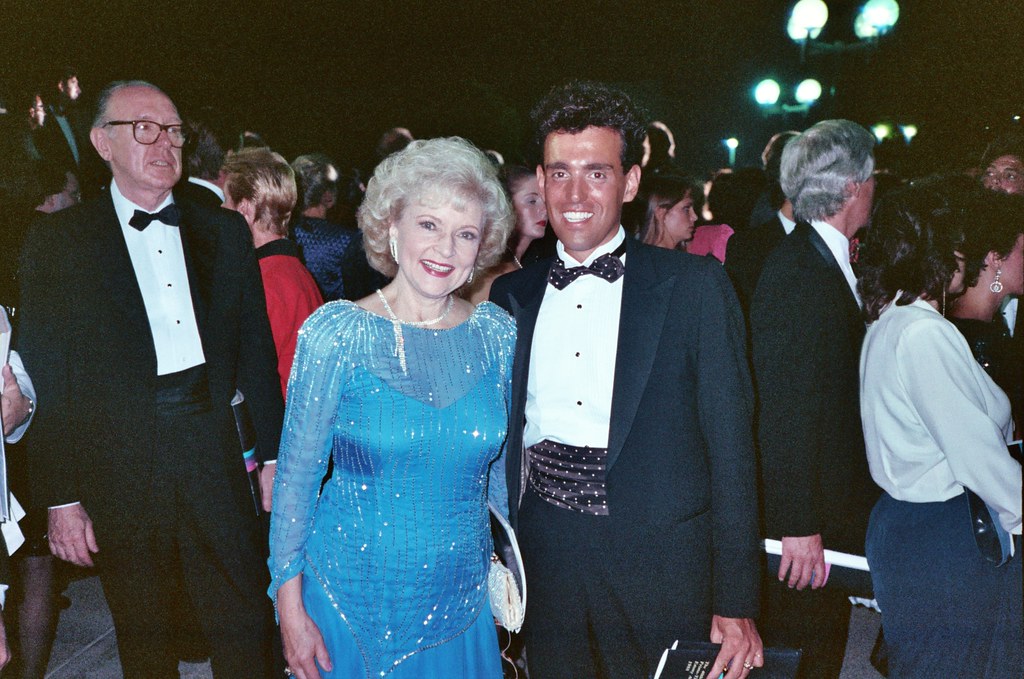
11. **Saturday Night Live and Hot in Cleveland: Reigniting the Flame**The momentum generated by ‘The Proposal’ and the iconic Snickers commercial culminated in an extraordinary grassroots movement on Facebook in January 2010, titled ‘Betty White to Host SNL (Please).’ With nearly half a million members advocating for her appearance, NBC, recognizing the undeniable public demand, confirmed on March 11, 2010, that White would indeed host ‘Saturday Night Live’ on May 8. At 88 years old, she became the oldest person ever to host the revered sketch comedy show, a testament to her enduring popularity and comedic timing. Her opening monologue, in which she playfully thanked Facebook while admitting she ‘didn’t know what Facebook was, and now that I do know what it is, I have to say, it sounds like a huge waste of time,’ perfectly captured her charmingly self-deprecating wit.
Her ‘Saturday Night Live’ appearance was nothing short of a triumph, showcasing her ability to effortlessly engage with a younger cast and audience, delivering sketches with a youthful energy and razor-sharp delivery that belied her age. The performance earned her a 2010 Primetime Emmy Award for Outstanding Guest Actress in a Comedy Series, adding another coveted trophy to her already illustrious collection and further solidifying her remarkable resurgence. This Emmy win placed her in an elite category, making her and Jean Smart the only actresses to have wins in all three comedy Emmy categories—Lead, Supporting, and Guest.
Building on this incredible momentum, in June 2010, White embraced another iconic role as Elka Ostrovsky, the sassy, marijuana-loving house caretaker on TV Land’s original sitcom ‘Hot in Cleveland.’ Originally intended for only the pilot episode, her irresistible charm and comedic genius led producers to extend her role for the entire series run. ‘Hot in Cleveland’ proved to be a resounding success, running for six seasons and 128 episodes, with White earning a Primetime Emmy nomination in 2011 for Outstanding Supporting Actress in a Comedy Series. Her late-career flourish continued as she also hosted and executive produced ‘Betty White’s Off Their Rockers’ from 2012 to 2014, a hidden-camera prank show that garnered her three additional Emmy nominations, further cementing her status as an undeniable force in contemporary television. Her voice even delighted a new generation in 2019, when she lent her distinctive tones to the character of Bitey White, a toy tiger, in Pixar’s ‘Toy Story 4,’ affectionately noting, ‘I’m a sucker for animals, so the tiger was perfect!’

12. **A Champion for Animals: A Lifelong Passion**Beyond the bright lights of Hollywood, Betty White harbored a profound and unwavering passion for animal welfare, a commitment that defined much of her personal life and charitable endeavors. Her advocacy was not a fleeting interest but a lifelong dedication, deeply rooted in her earliest aspirations and nurtured through decades of active involvement. Her love for animals began early, even influencing her initial childhood dream of becoming a forest ranger, a path regrettably closed to women at the time. This deep-seated affection transformed into tangible action, making her one of the entertainment industry’s most prominent and effective animal advocates.
White’s formal involvement in animal welfare organizations began in the early 1970s, coinciding with her role as producer and host of the syndicated series ‘The Pet Set,’ a groundbreaking program that spotlighted celebrities and their beloved pets. This early initiative laid the foundation for decades of dedicated service. She became the president emerita of the Morris Animal Foundation, an organization she served as a trustee for starting in 1971, tirelessly working to advance veterinary research. Additionally, she was a long-standing member of the board of directors of the Greater Los Angeles Zoo Association since 1974, and even served as a Zoo Commissioner for eight years, actively contributing to the welfare of animals under its care. Her generosity was significant, exemplified by a donation of nearly $100,000 to the Los Angeles Zoo in April 2008 alone.
Her commitment extended to public awareness and fundraising, as she actively participated in various initiatives. She served as a judge for the American Humane Hero Dog Awards, recognizing the extraordinary bonds between humans and animals. In 2010, she launched her own clothing line, with all proceeds dedicated to supporting various animal charities, further integrating her professional endeavors with her philanthropic mission. Her efforts were widely recognized, earning her the American Veterinary Medical Association’s Humane Award in 1987. In 2006, the City of Los Angeles honored her philanthropic work with a bronze commemorative plaque near the Gorilla Exhibit at the Los Angeles Zoo, officially naming her its ‘Ambassador to the Animals,’ a title that perfectly encapsulated her enduring and profound impact on animal welfare.
Read more about: Loretta Swit, the Emmy-Winning ‘Hot Lips’ Houlihan of ‘M.A.S.H.’, Dies at 87, Leaving a Legacy of Versatility and Impact

13. **Championing Social Justice: Upholding Racial Equality**Betty White’s commitment to social justice extended beyond animal welfare, encompassing a steadfast dedication to racial equality that manifested early in her career and resonated throughout her life. While her pioneering stance on ‘The Betty White Show’ in the 1950s was a remarkable act of defiance against the prejudices of the Jim Crow era, her unwavering conviction continued to serve as a beacon of principled advocacy. She refused to compromise her values when faced with threats to boycott her show if she did not remove African-American tap dancer Arthur Duncan, famously responding, ‘I’m sorry. Live with it,’ and subsequently giving Duncan even more airtime. This courageous stand was a powerful demonstration of her belief in equality, long before such positions were commonplace or universally accepted in mainstream media.
The profound impact of her actions was highlighted decades later, demonstrating that her advocacy for racial equality was not merely a moment but an enduring legacy. In 2017, Arthur Duncan himself appeared as a surprise guest on ‘Little Big Shots: Forever Young,’ where he reunited with White, publicly thanking her for her steadfast support. This heartwarming reunion underscored the ripple effect of White’s moral fortitude, illustrating how her courage had a lasting positive influence on an individual’s life and career. It served as a poignant reminder that her early acts of resistance were deeply felt and never forgotten, reinforcing her role as an advocate who genuinely walked the talk.
Even in her passing, White’s contributions to racial equality were recognized and celebrated. The Martin Luther King Jr. Center offered their heartfelt condolences and specifically praised her for her early and unwavering support of racial equality, cementing her place not just as an entertainment icon, but as a champion of fundamental human rights. Her legacy is one of consistent conviction, demonstrating that true influence extends beyond performance, embracing a moral compass that guided her through an evolving society, always pushing for a more inclusive and equitable world.

14. **Championing Social Justice: A Voice for LGBT Rights**Betty White’s advocacy for social justice further extended to a passionate and unequivocal support for LGBT rights, a stance she articulated with characteristic candor and wisdom. In an era when public figures often shied away from such topics, White consistently used her platform to champion inclusivity and acceptance. Her outspoken views underscored her belief in fundamental human dignity and the right to love and marry without prejudice. In a candid 2010 statement, she declared, ‘If a couple has been together all that time – and there are gay relationships that are more solid than some heterosexual ones – I think it’s fine if they want to get married. I don’t know how people can get so anti-something. Mind your own business, take care of your affairs, and don’t worry about other people so much.’ This direct and compassionate approach resonated deeply with many, offering both validation and a powerful message of tolerance.
Her personal life also reflected this inclusive philosophy, as she maintained a close friendship with the legendary entertainer Liberace. In a 2011 interview, White revealed her quiet support for him, stating that she always knew he was gay and sometimes accompanied him to premieres to help him maintain his public facade. This revelation offered a poignant glimpse into her empathetic nature and her willingness to offer personal support to her friends in an era when being openly gay in Hollywood carried significant professional risks. Her actions, both public and private, demonstrated a genuine commitment to the well-being and acceptance of all individuals.
White’s advocacy for LGBT rights was not merely a performative gesture; it was an integral part of her worldview, rooted in a profound sense of fairness and respect. Her consistent voice, delivered with characteristic grace and a touch of no-nonsense practicality, served as a powerful endorsement for equality, influencing public opinion and offering comfort to countless individuals. She embodied an unwavering belief that love, commitment, and personal autonomy should be celebrated, not judged, further solidifying her legacy as a humanitarian whose influence transcended the entertainment realm.
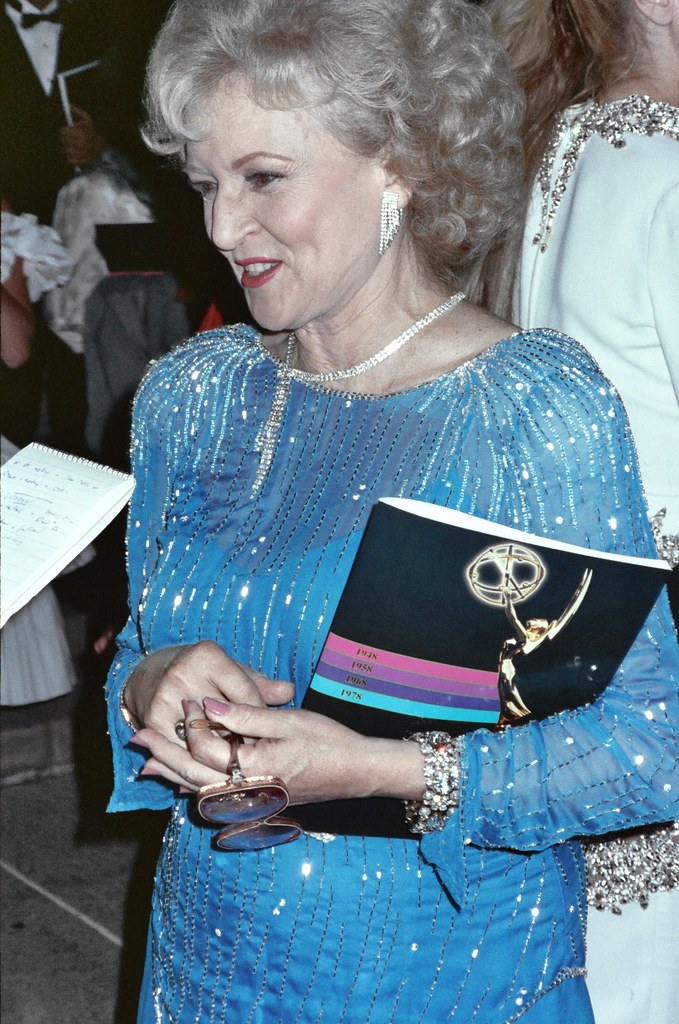
15. **An Unparalleled Legacy: Awards, Honors, and Enduring Impact**Betty White’s extraordinary life and career culminated in an unparalleled array of awards, honors, and an enduring cultural impact that few in entertainment could ever hope to match. Her trophy cabinet alone speaks volumes, boasting seven Emmy Awards, three Screen Actors Guild Awards, and a Grammy Award. She made history as the first woman to receive an Emmy in all performing comedic categories and holds the remarkable record for the longest span between Emmy nominations—over 60 years, from 1951 to 2014—a testament to her boundless talent and relentless presence across television’s evolution. Beyond the Emmys, she also garnered three American Comedy Awards, including a Lifetime Achievement Award in 1990, and two Viewers for Quality Television Awards.
Her profound contributions were further recognized with prestigious institutional honors. She was inducted into the Television Hall of Fame in 1995 and proudly received a star on the Hollywood Walk of Fame, positioned thoughtfully alongside that of her beloved late husband, Allen Ludden. In 2009, the Television Critics Association bestowed upon her their Career Achievement Award, and in 2010, the Screen Actors Guild presented her with their Life Achievement Award, a heartfelt tribute delivered by her ‘The Proposal’ co-star Sandra Bullock. She also became an honorary forest ranger, fulfilling a childhood dream, a poignant moment reflecting her lifelong love for nature and animals, and in 2009, she, along with her ‘Golden Girls’ cast mates, received Disney Legends awards.
White’s impact extended beyond industry accolades into the very fabric of American popular culture. She was named the Associated Press’s Entertainer of the Year in 2010, and a 2011 poll by Reuters and Ipsos revealed her to be the most popular and trusted celebrity among Americans, surpassing even titans like Denzel Washington and Tom Hanks. In 2017, at the remarkable age of 95, she was invited to become a member of the Academy of Motion Picture Arts and Sciences, making her the oldest new member at the time. Her legacy will continue to be celebrated for generations, with the United States Postal Service set to unveil a Forever stamp featuring her image in 2025. Her passing on December 31, 2021, just shy of her 100th birthday, brought an outpouring of global tributes, culminating in the release of the pre-filmed documentary ‘Betty White: A Celebration’ on her planned centennial, January 17, 2022, a testament to an extraordinary life truly well-lived and an enduring spirit that will forever shine in the annals of entertainment and humanitarianism. Her estate’s donation of television memorabilia, including five Emmy Awards, to the National Comedy Center ensures that her legacy continues to inspire future generations.
Read more about: Ozzie Rodriguez, La MaMa’s Visionary Archivist and Artistic Force, Dies at 81: An In-Depth Tribute
Betty White’s journey was more than just a remarkable career; it was a vibrant tapestry woven with pioneering spirit, indomitable humor, and unwavering compassion. From the black-and-white screens of nascent television to the digital platforms of the 21st century, she didn’t just witness history—she made it. Her legacy is not merely in the laughter she elicited or the characters she embodied, but in the barriers she broke, the causes she championed, and the countless lives she touched with her genuine warmth and wit. She leaves behind a blueprint for how to live a life brimming with purpose, joy, and an enduring commitment to making the world a kinder, more inclusive place. Indeed, Betty White was a true original, a national treasure whose light will continue to shine brightly for generations to come.




